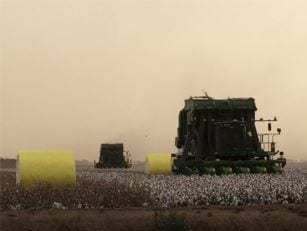
07 Nov Water as a Commodity
Water as a Commodity
By Charlotte Thomson
Murrumbidgee Irrigation farmer, Dean Salvestro, talks about water licenses and the impact they have had on his business.
The buying up of water licenses by the state government caused some panic when the state and federal government initiated the water-licensing scheme.
MIA farmer, Dean Salvestro along with his brother and father, run the 11,000 hectare property ‘Warrawidgee’ in the Benerembah district south west of Griffith. The Salvestro’s sold their water licence to the government with a favourable return.
“Land that’s not developed properly costs more money. By developing our land it allows us to make more money. The government was willing to assist us in the process so by selling our water licence put us in a better situation to improve our earnings.”
Recognising the value of water, the Salvestro’s they saw it as a chance to improve the quality of their land, “I suppose it was a risk we were prepared to take but we took it. It gave us the chance to grow crops we couldn’t before.”
The Salvestro’s then entered the open market to buy back their water at a heavily reduced cost, thereby turning the sale of their water into a mult-million dollar profit.
“Water is such a commodity out here. For example if I was growing rice and the market was no good, I could sell my water thereby covering my costs for the season.”
Farmers believed selling water to the government would place the control of water in government hands. This was the initial cause of panic.
Dean says, “It’s a better system with the marketplace determining who uses the water rather than the government allocating it.”
“The young generation farmers want the change, they believe it will benefit their crops but the older generation want to keep things the same.”
The Department of Primary Industries NSW (DPI) states “The MIA has a Mediterranean climate which is highly suitable for production of rice, other summer crops, pastures, winter crops, vegetables, grapes and citrus.” It is this climate of the MIA that the Salvestro’s believe will protect them from the effects of a lack of water.
Deans outlook on the future of farming in the MIA is positive, “Irrigation will be highly valued in the future. Our unique climate in the MIA provides us with reliable and sustainable production methods.”



Sorry, the comment form is closed at this time.